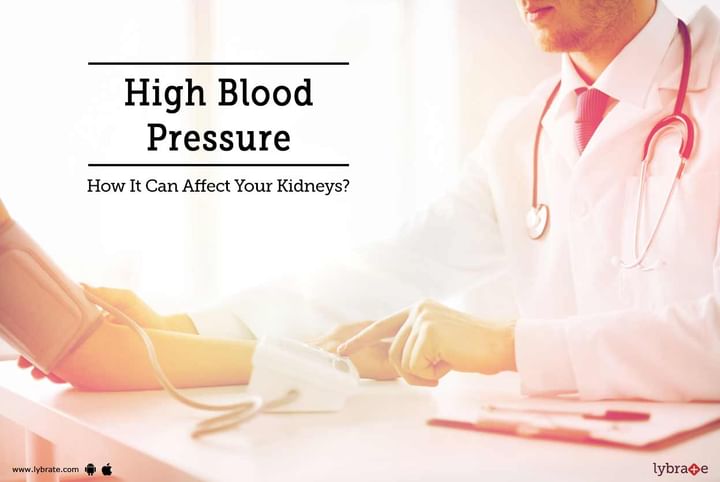High Blood Pressure - How It Can Affect Your Kidneys?
Roll up your sleeves for a blood pressure check to know how well your kidney is doing. High blood pressure is the leading cause of kidney disease. Therefore, it is important to monitor your blood pressure regularly. Let’s understand the connection between high blood pressure and kidney disease by knowing about them in detail.
What is high blood pressure?
It is the force of the blood that pushes against the blood vessel walls when the heart pumps blood. High blood pressure, also called hypertension, is an increase in the force of blood as it moves through the body. The first number is the systolic pressure that indicates the pressure as the heart beats and pushes blood through the blood vessels. The latter number is the diastolic pressure, which indicates the pressure as the blood vessels relax between each heartbeat. A high blood pressure is one where the systolic pressure measures 140 or above and the diastolic pressure measures 90 or above.
How do kidneys work?
Each kidney is made of millions of filtering units called nephrons. These nephrons constitute a filter called glomerulus and a tubule. The glomerulus allows fluid and waste products to pass through it and prevents blood cells and large molecules from passing. The filtered fluid then passes again through the tubule, which removes waste and sends the nutrients back to the blood stream. The waste products are excreted in the form of urine.
How does high blood pressure affect your kidneys?
The nephrons in the kidneys are surrounded and supplied with a dense network of blood vessels. Each nephron receives blood supply through tiny hair-like capillaries, which constitute the smallest of all blood vessels.
When there is an uncontrolled high blood pressure and an increased blood flow, it tends to narrow, weaken or harden the arteries. Without enough blood supply through the damaged arteries, the nephrons do not get enough oxygen and nutrients. As a result, the kidneys lose their ability to filter blood and remove wastes. The small blood vessels of the kidney are more prone to damage due to high blood pressure.
Healthy kidneys release a hormone called renin-angiotensin-aldosterone, which regulates the blood pressure and is responsible for maintaining the level of sodium and water in the body, which eventually controls blood pressure and enables you to lead a healthy life. On the contrary, damaged kidneys fail to regulate the pressure of blood in the body which further results in even high blood pressure and contributes to the damage in a spiral way. Kidney failure due to high blood pressure is a progressive process. However, you can act now by managing your blood pressure levels and lead a healthy life.
In case you have a concern or query you can always consult an expert & get answers to your questions!



+1.svg)
